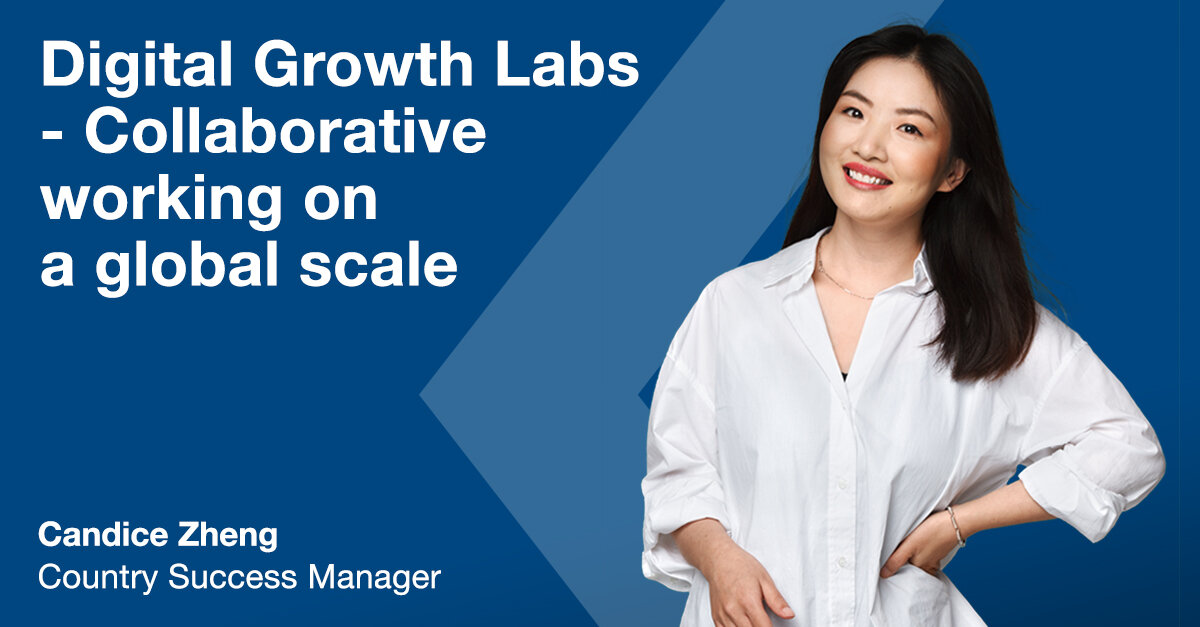
Search jobs
Help to shape the digital future of one of the world’s best-loved brands.
Collaborative working is at the heart of Miele X, with different teams working together to deliver digital success for Miele. The Country Success team plays a key role in this, connecting Miele teams in more than 50 countries around the world with Miele X’s digital experts. One of the team’s most successful initiatives has been delivering Digital Growth Labs (DGLs) – workshops that bring Miele and Miele X colleagues together from around the world. We talked to Candice Zheng, Country Success Manager, about the success of the DGLs and how her team are continuing to learn from and develop them.

Connecting local teams with global experts
Candice moved to the Netherlands from China in 2018 to study digital marketing. After graduation, she joined a small company focusing on Chinese business, before moving to Miele X in 2021. “I liked the idea of a generalist role, covering a lot of digital topics, with a helicopter view on different aspects of the business,” she explains. She was promoted to her current role in 2023: “In simple terms, we’re account managers for the Miele subsidiaries in more than 50 countries around the world. We talk to them regularly to understand their needs and the issues they’re facing, and to identify common topics in different markets. Then we raise these with our expert teams in Miele X.”
Candice focuses on Asia-Pacific, plus Germany, Austria and Switzerland, gaining market insights and passing these on to the Miele X teams. “We give them important updates on areas such as local market strategy, pain points, growth levers or digital detractors. For example, if the Miele X teams are rolling out a feature, we can identify which countries will benefit from it most.”
Her team also helps Miele X teams to understand local Miele strategies. “We call this eCommerce roundtable. We’ve created a template for the local teams that covers strategic areas such as their eCommerce strategy, pain points for the next year and where we can support them.” Her team documents the responses and brings relevant market and Miele X stakeholders together to identify how Miele X can help them achieve their plans. She says this not only helps the country teams, but also helps the Miele X experts to understand how their central initiatives can contribute to local success.
Digital Growth Labs – a personal connection
When Candice joined Miele X in 2022, it was a relatively new business. So, she and her colleagues developed the idea of the ‘Digital Growth Lab’ to give local Miele and Miele X teams a chance to get to know each other and build solid foundations for collaboration. “We invited the subsidiaries to our offices in Amsterdam, so they could understand what we were doing, and we could identify their critical topics and how we could support them. We wanted to show that we’re a joint force, driving the eCommerce business together.”
She says that over time, the focus of the DGLs has changed. “Each DGL now focuses on discussing a specific critical topic. This could be related to a particular product category, such as vacuum cleaners, or a marketing or B2B-related topic. We invite interested country teams along with other relevant stakeholders from Miele headquarters and our own Miele X teams. We call it Digital Growth Lab 2.0.”
Making it happen
Candice explains that the idea is for everyone to get together, understand the challenges, learn about any ongoing initiatives and brainstorm solutions. “The first DGL day is about collaborating on a collective download – understanding different initiatives, sharing best practices, and identifying key trends and challenges.” The second day focuses on co-creation. “It’s our opportunity to focus on the key points we discovered on day one, and to come up with possible solutions together with the cross-functional teams.”
Her team organises and facilitates each DGL. “Beforehand, we contact each stakeholder to ensure we align with their objectives. Then we facilitate the workshop, making sure the agenda runs smoothly. And afterwards, we prepare the summary, identify action points and follow up with each team to make sure we deliver on the outcomes.”
A positive experience
Candice adds that they’ve had a lot of positive feedback. “The Miele country teams see that their needs are identified and their voice is heard by the headquarters teams. They also appreciate the opportunity to learn valuable insights and best practices from other markets.”
She says the workshops also enable the Miele X teams to identify the situations and pain points in different markets, which helps them to organise or prioritise their work. And they allow the central Miele business units to focus on eCommerce. “They cover a lot of different channels – online, offline or key accounts,” she points out. “Focusing on eCommerce enables them to do a deep dive into this topic, which can give them valuable insights they can apply to other channels. And it helps to strengthen their relationships with the country market teams.”
She outlines how attending the DGLs has helped her, too. “I’ve learned a lot about how and why certain markets approach campaigns and promote products in different ways,” she says. As an example, she explains that in markets such as Hong Kong, where living space is limited, customers prefer buying multifunction appliances, such vacuum cleaners with a mopping function. “This kind of detail is helpful for the global product teams to understand why a certain product might not be performing well in some markets and to think about what can be done to improve it.”
Looking ahead
Candice says her team is now looking at how to improve the DGL format. “We’ve been taking an outside-in approach so far, focusing on issues in the markets. But now we want to align the topics more with the Miele X teams and Miele business units too, so we make sure everyone is synced together on the objectives and we deliver the outcomes as a team.”
She adds that her team is currently planning a DGL about knowledge-sharing. She explains that the Miele X Knowledge Management team has developed a knowledge-sharing platform called Skillbook, which is the central place to store knowledge, such as business hacks or digital skill training. “We want to make sure the knowledge content or training we are producing meets the needs of the markets,” she says. “We’ll use this DGL to collect and validate the knowledge sharing needs and to brainstorm creative formats to empower knowledge sharing.”
Another route her team’s exploring is introducing more engaging formats for online workshops, such as short, two-hour round-table sessions focusing on one specific topic. Whatever direction they take, she’s certain the DGLs will still connect different functions or stakeholders in different locations. “Our team’s vision is to encourage collaboration between different teams, so this will continue to be our main goal.”